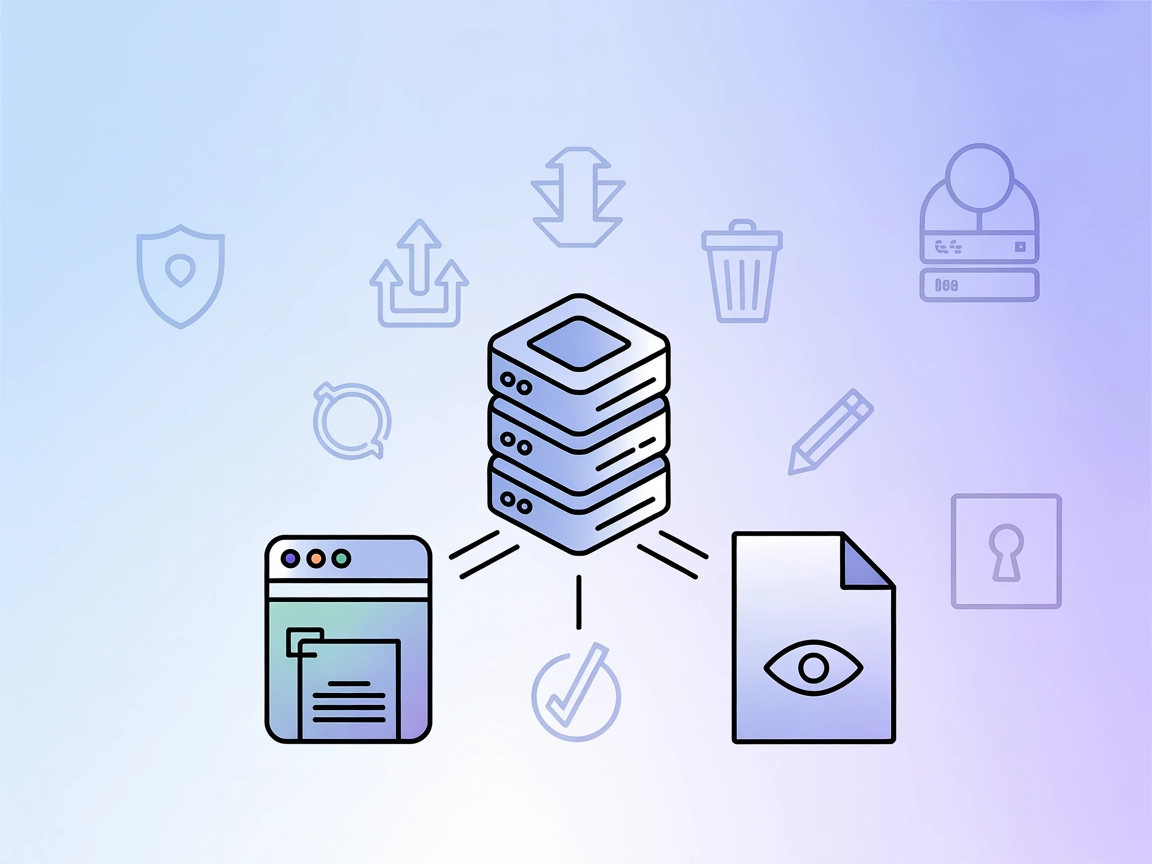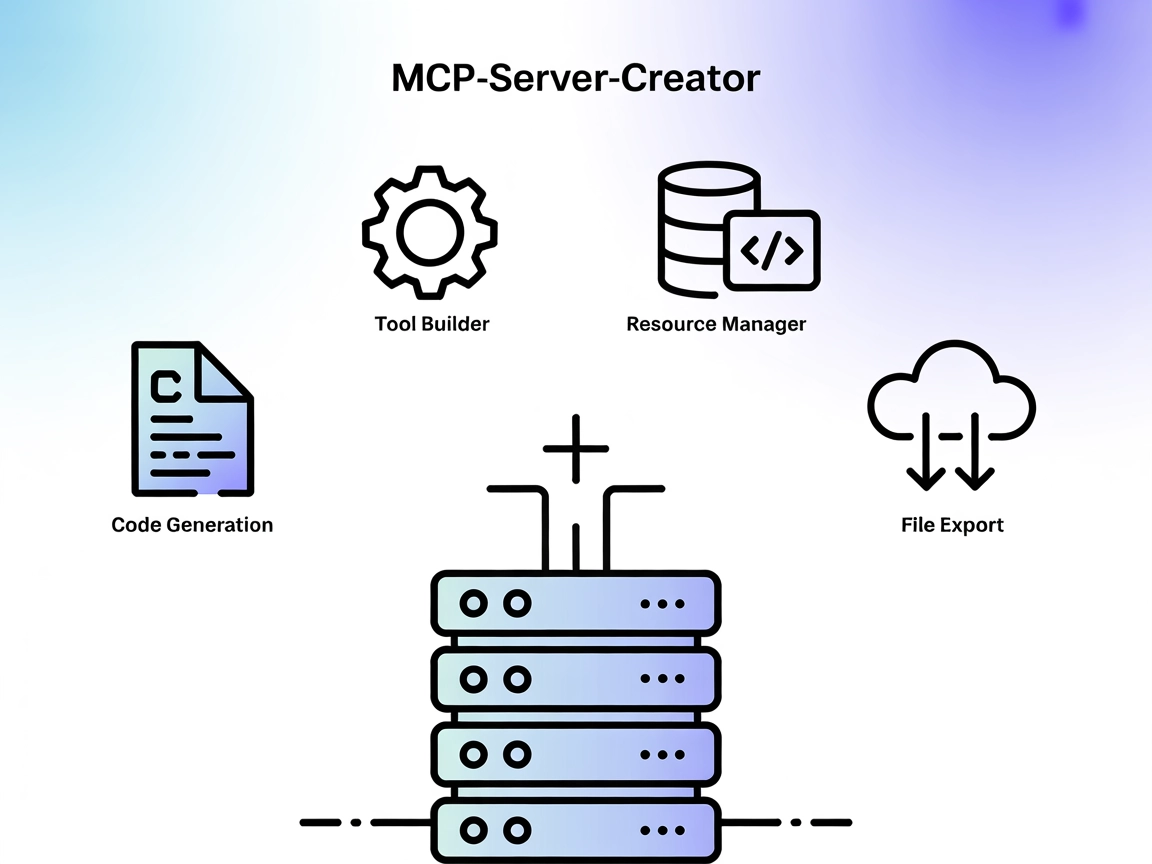
Model Context Protocol (MCP) Server
The Model Context Protocol (MCP) Server bridges AI assistants with external data sources, APIs, and services, enabling streamlined integration of complex workfl...

Expose MD5 and SHA-256 hashing as tools in your AI-powered workflow for quick, reliable data integrity checks and cryptographic operations.
FlowHunt provides an additional security layer between your internal systems and AI tools, giving you granular control over which tools are accessible from your MCP servers. MCP servers hosted in our infrastructure can be seamlessly integrated with FlowHunt's chatbot as well as popular AI platforms like ChatGPT, Claude, and various AI editors.
The Hashing MCP Server is a Model Context Protocol (MCP) server designed for calculating cryptographic hashes, specifically MD5 and SHA-256. By exposing these hashing functionalities as tools, it enables AI assistants and LLM-based development environments (such as Claude Desktop and VSCode) to process cryptographic requests efficiently. The server streamlines tasks that require quick hash generation, which is essential for verifying data integrity, securing content, and supporting workflows that involve cryptographic operations. Its integration with MCP clients allows developers and AI agents to seamlessly request and receive hash computations, simplifying workflows that depend on cryptography.
No information found regarding prompt templates in the repository.
No explicit MCP resource definitions found in the repository.
venv/uv is available.mcpServers section:{
"mcpServers": {
"hashing-mcp-server": {
"command": "docker",
"args": ["run", "-p", "7090:7090", "kunalpathak13/hashing-mcp-server:latest"]
}
}
}
{
"mcpServers": {
"hashing-mcp-server": {
"command": "docker",
"args": ["run", "-p", "7090:7090", "kunalpathak13/hashing-mcp-server:latest"]
}
}
}
{
"mcpServers": {
"hashing-mcp-server": {
"command": "docker",
"args": ["run", "-p", "7090:7090", "kunalpathak13/hashing-mcp-server:latest"]
}
}
}
{
"mcpServers": {
"hashing-mcp-server": {
"command": "docker",
"args": ["run", "-p", "7090:7090", "kunalpathak13/hashing-mcp-server:latest"]
}
}
}
Securing API Keys Example:
While this server does not require API keys, if you add one, use:
{
"env": {
"HASHING_MCP_API_KEY": "your_api_key_here"
},
"inputs": {}
}
Replace HASHING_MCP_API_KEY with your variable as required.
Using MCP in FlowHunt
To integrate MCP servers into your FlowHunt workflow, start by adding the MCP component to your flow and connecting it to your AI agent:

Click on the MCP component to open the configuration panel. In the system MCP configuration section, insert your MCP server details using this JSON format:
{
"hashing-mcp-server": {
"transport": "streamable_http",
"url": "https://yourmcpserver.example/pathtothemcp/url"
}
}
Once configured, the AI agent is now able to use this MCP as a tool with access to all its functions and capabilities. Remember to change “hashing-mcp-server” to your actual MCP server name and replace the URL.
| Section | Availability | Details/Notes |
|---|---|---|
| Overview | ✅ | Summarized from README and repo description. |
| List of Prompts | ⛔ | No prompt templates found. |
| List of Resources | ⛔ | No explicit MCP resources documented. |
| List of Tools | ✅ | calculate_md5, calculate_sha256 from README. |
| Securing API Keys | ✅ | Example provided, but not required for this server. |
| Sampling Support (less important in evaluation) | ⛔ | No mention of sampling support. |
This MCP server is very focused and simple, providing basic but valuable crypto-hashing tools. Its documentation is clear, but lacks advanced features like prompt templates or explicit MCP resources. The lack of stars and forks suggests it’s early-stage, but the presence of a license and Docker/PyPI support is good. Score: 5/10 for clarity and utility, but limited scope and adoption.
| Has a LICENSE | ✅ (MIT) |
|---|---|
| Has at least one tool | ✅ |
| Number of Forks | 0 |
| Number of Stars | 0 |
The Hashing MCP Server is a simple Model Context Protocol server that exposes cryptographic hashing tools (MD5 and SHA-256) for AI assistants and development environments. It enables quick and reliable hash generation for tasks like file integrity checks, content deduplication, and more.
It provides two tools: calculate_md5 (to compute an MD5 hash of a given input) and calculate_sha256 (to compute a SHA-256 hash).
You can add the server to your MCP client configuration in platforms like Windsurf, Claude Desktop, Cursor, or Cline using Docker or Python. Just copy the configuration snippet shown in the setup section, restart your client, and the tools should appear.
No, this server does not require an API key by default. If you wish to add one for custom deployments, you can specify an environment variable in your configuration.
The main use cases include verifying file integrity, demonstrating password hashing, deduplicating data by comparing hashes, and validating API responses during development.
Yes! Add the MCP component in your FlowHunt flow, enter your MCP server details, and the AI agent can use all provided hashing tools directly in your workflow.
Easily add cryptographic hashing to your AI workflows and development environments with FlowHunt's streamlined MCP integration.

The Model Context Protocol (MCP) Server bridges AI assistants with external data sources, APIs, and services, enabling streamlined integration of complex workfl...

The mcp-rquest MCP Server empowers AI assistants with advanced, browser-like HTTP request capabilities, robust anti-bot evasion, and document-to-Markdown conver...

The MCP-Server-Creator is a meta-server that enables rapid creation and configuration of new Model Context Protocol (MCP) servers. With dynamic code generation,...
Cookie Consent
We use cookies to enhance your browsing experience and analyze our traffic. See our privacy policy.